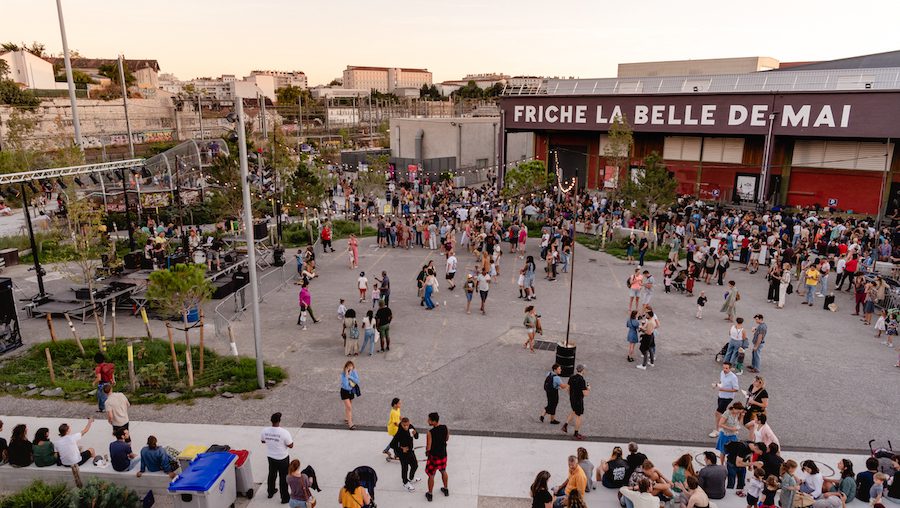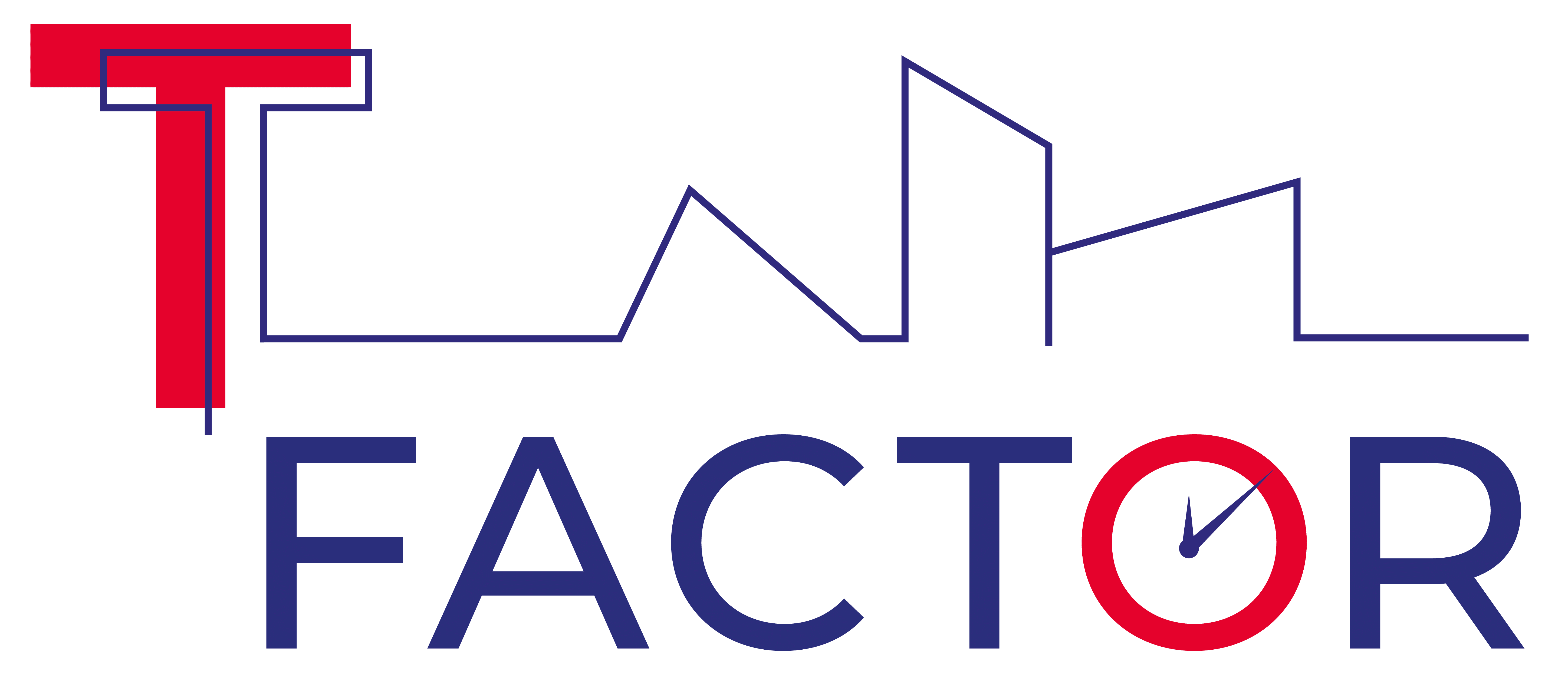Join us in the online conference “Social impact of cultural projects”
On October 4, La Friche, Marseille, will host visitors from London for an evening symposium to share parallel experiences of social power in the two cities. The event will explore perspectives on social and cultural value specific to the contexts of La Friche, Marseille, and Camden, London, both case studies of T-Factor project. The symposium will bring together practitioners, academics and policy makers to share knowledge and consider urban values.
With the growing recognition that urban cultural production, generated through collaborative art, architecture and design practice, the development of hybrid and community spaces, questions arise about how socially engaged cultural practices and institutions can interact with complex urban development systems without unintentionally making things worse for disadvantaged communities.
Practitioners and publics doing socially engaged forms of practice often struggle to demonstrate the value and potential of practice and face challenges influencing city making processes in meaningful ways. The soft power exerted through practice can be difficult to communicate, as such cultural activities are often undervalued and decision makers struggle to know how best to support the generation of social value. This is where conversations about social value/power can create bridges.
Speakers:
_ Patrycja Kaszynska – Senior Research Fellow | University of the Arts London.
_ Eli Hatleskog – Research Fellow | University of the Arts London/T-Factor.
_ Mathilde Goûteux – PhD student employee | Friche la Belle de Mai, LEST-CNRS).
_ Carol Giordano – Digital and hybrid arts producer | Chroniques.
_ Malik Benghali – Expert in social utility project assessment.
_ Sven Muendner – Founding Director Beispiel | Studio Tutor MArch UAL.
_ Mick Finch – Pr. of Visual Art Practice | University of Arts of London/T-Factor.
_ Vincent Fouchier – Director of Foresight and Development Council, within the Aix-Marseille Metropolitan Authority’s General Services Department (TBC).
_ Therese Gallagher | Euston Manager London Borough of Camden.
_ Mary-Ann Lewis – Head of Euston Regeneration | London Borough of Camden.
_ Liza Fior – Founding partner of Muf architecture/art | Pr central saint Martins.
_ Eva Riccio – Head of International Cooperation -| Friche la Belle de Mai.
This meeting will be held entirely in English and registration is available for both in-person and online attendance.
Speakers Biographies:
- Patrycja Kaszynska – Senior Research Fellow at University of the Arts London & Affiliate at Northeastern University London.
Patrycja’s expertise is in valuing culture in decision-making. She has a track record of shaping UK’s ‘cultural value debate’: first through the AHRC Cultural Value Project, then the AHRC Cultural Value Scoping Project and most recently as Principal Investigator for the AHRC and DCMS-funded Scoping Culture and Heritage Capital. Her research interests are at the cross section of critical theory, pragmatic philosophy and cultural studies with the key focus on the theory of value and valuation studies.
- Eli Hatleskog – Research Fellow at CSM/UAL/T-Factor T-Lab 1
Through T-Factor, Eli has supported the creation of a community of socially engaged practice at Euston, London. She specialises in trans/interdisciplinary urban research. Working with systems engineers at Bristol, she developed a working synthesis of ‘systems thinking’ and ‘co-production’ to diagnose urban challenges (RCUK/Innovate UK Urban-ID) and led research-on-research into the practices of mission-oriented transdisciplinary working (UKPRP TRUUD). Prior to this she collaborated with established practitioners from across Europe to learn about their different approaches to practice-based doctoral research (ADAPT-r ITN). With the aim of demonstrating and evaluating the impact of good design, she co-developed guidance for British architects in the RIBA ‘Social Value Toolkit for Architecture’ (2020), co-guest edited ‘Social Value in Architecture’ (AD 2020) and was joint winner of the 2020 RIBA President’s Medal for Research – Cities and Community for ‘Mapping Social Values’.
- Mathilde Gouteux – PhD student employee (La Friche, LEST-CNRS)
Mathilde is a PhD student at LEST (Aix-Marseille Université, CNRS) and employee in La Friche La Belle de Mai. Her work is about common governance in cultural cooperatives. In her previous job at Villes Innovation with Raphaël Besson, she participated in research on externalities of the hybrid and digital art projects for the French national network HACNUM.
- Carol Giordano – Chroniques : Digital and hybrid arts producer
Deputy Director of Chroniques.
- Malik Benghali – Expert in social utility project assessment
After working for 25 years as director of a social center, Malik BENGHALI has dedicated himself since 2021 to the creation of a training center whose main objective is to develop projects for evaluating social utility for social centers.
- Sven Mündner – Founding Director Beispiel / Associate Lecturer MArch CSM/UAL
Sven is an independent spatial practitioner based in London. He is advising public and private clients on activating public realm and semi-public space through site analysis, design input and delivery. Collaborating with Things Made Public, Sven recently developed a cultural strategy for the over-station development at HS2/Euston (Lendlease). His interest in meanwhile use and social value developed through self-initiated projects including Bold Tendencies, a carpark converted into an experimental civic space (since 2008), Peckham Refreshment Rooms (2013-18), Palazzo Peckham at the Venice Biennale (2013). Sven has been teaching methodologies of architectural engagement (MArch) at CSM since 2017.
- Mick Finch – Professor of Visual Art Practice at Central St Martins/UAL/T-Factor T-Lab 1
Mick Finch is an artist and researcher. He was principle investigator for the AHRC funded project, A Vision for Europe: Academic Responsibility and Action in Times of Crises, in collaboration with the Warburg Institute, and the Bilderfahrzeuge research group Outcomes of this project are an exhibition, Bilder Auf Wanderscaft at the Zentralinstitut in Munich, and the publication, Image Journeys: The Warburg Institute and a British Art History. He is a co-investigator on the AHRC-GCRF project Imagining Futures and is part of the team working on T-Factor, an EU Horizon 2020 funded project. He is currently Professor in Visual Art Practice at the University of the Arts London, Central Saint Martins and a member of the artistic committee of the Institut Français Fluxus Projects Group. He was an Abbey Fellow in Painting at the BSR in 2011, is a Fellow of the Terra Foundation and was a recipient of a Pollock-Krasner Foundation Grant.
- Therese Gallagher – Euston Manager London Borough of Camden, T-Factor Pilot Partner Euston.
Therese has collaborated closely with T-Factor exploring possibilities for closer ties between CSM and the onsite activities at Euston. She was involved in developing the Social Value Charter for Euston and is a member of the Euston Partnership’s meanwhile use working group, which is currently focussed on delivering meanwhile uses onsite.
- Mary-Ann Lewis – Head of Euston Regeneration at London Borough of Camden, T-Factor Pilot Partner Euston.
Mary-Ann is supporting a number of initiatives in Euston, which aim to enhance social value locally and leverage benefits from the proposed High Speed 2 (HS2) project. These include a Social Value Charter and Euston Good Life through the Euston Regeneration team.
- Liza Fior – Professor at CSM/UAL and founding partner muf architecture/art
Through her embedded approach to practice, designing public spaces with local people but also local authorities and other interested parties, Liza has developed fluency in both advocating for and designing shared public spaces with care with those who will use them, at times for developers, institutions and landowners who worry about the implications of what that might mean. Liza has insight into some of the challenges, contradictions and implications of social value in the built environment. See more on www.muf.co.uk, mufs work has been recognised internationally including by the European Prize for Public SPace.
- Eva Riccio – Head of International Cooperation – Friche La Belle de Mai, Marseille/ T-Factor Advanced Case Study
La Friche la Belle de Mai has been engaged since several years to develop more partnerships toward Europe sharing its 30 years of experience in prototyping ways of transforming a former industrial space into an artistic and cultural factory (governance model, economic model, relations with the neighborhoods and public cooperation culture). Eva Riccio is managing la Friche’s participation to EU projects (Europe Creative, H2020, Erasmus +) for fostering an ecosystem of partnerships about the place of culture and artistic communities into urban planning. She is developing new relationships for bringing pairs’ experience into the Friche’s community and participates in the ideation of new initiatives which are led at the European scale.
- Francesca Petrella – Professor in Economics at Aix-Marseille University and researcher at the LEST (Institute of Labour Economics and Industrial Sociology, CNRS, UMR 7317).
Francesca is co-director of the Master Degree on the management of Social Economy organizations of Aix-Marseille University. She is member of research networks at national and international levels (e.g. EMES, CIRIEC). She has developed research on social economy organizations, their transformation and interactions with public policies, social innovation, quality of work and new forms of governance. Recently, she has published a literature survey on the evaluation of nonprofit organizations in France. She participated in different European research projects, in particular in the Third Sector Impact project (TSI) and the INTERREG Med +Resilient (on social clusters).
The conference is part of LaboFriche, an initiative which focuses on societal challenges, with the aim of catalysing knowledge exchange and collaboration across La Friche. It is a nexus space of intersecting perspectives and ideas. LaboFriche takes the form of meetings, workshops, and participatory investigations. Its goal is to share, debate, and, most importantly, act.
Cover image credit: Old Diorama Arts Centre/Claire Haigh



